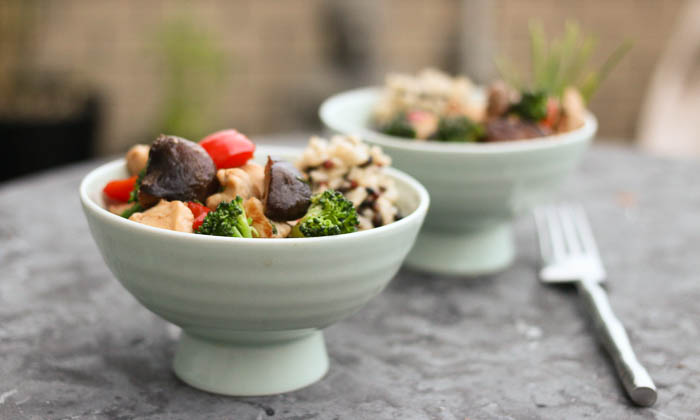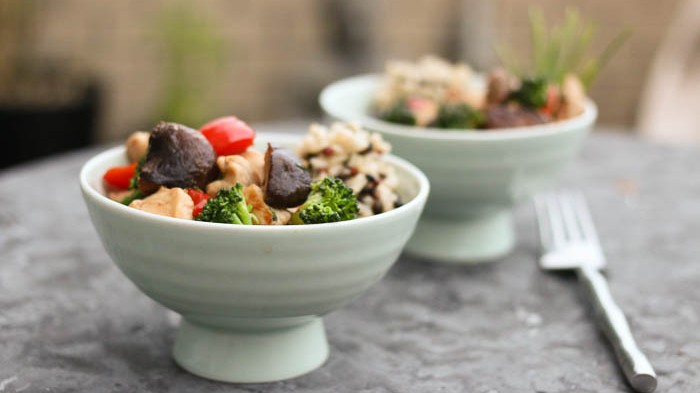This tasty stir-fry recipe has been my go-to, easy, weekday dinner, that also transforms into a great colorful dish that has impressed many at a dinner party. There’s the sweetness that comes from the red peppers, a crunchiness that comes from the broccoli, and depth of flavor from the shitakii mushrooms…all combined with lean, protein-rich chicken. Doesn’t get more heart friendly and diabetes friendly than that! If you like it hot you can throw in a heaping teaspoon of chili pepper sauce, which I often do. Boom!
A note on the wild rice that I pair it with: I started eating white rice before I could walk since it’s a staple of Chinese cuisine. But when my dad got diagnosed with diabetes, white rice was one of the many foods that got tossed out of the pantry. My mom started experimenting with brown rice, wild rice, black rice, red rice, etc. I like the color and textures of wild rice, but this dish would go well with brown rice, red rice, quinoa or even my new favorite, cauliflower rice!
Further Food Commentary:
It’s always a great idea to have an arsenal of “go to” recipes to combat busy weekdays. I’m loving this recipe not only because its super healthy, but also because it is a one-pot meal. This definitely saves on time slaving over the dishes. Nutritionally speaking, this stir fry dish is a perfect balance of carbohydrates (from the rice), protein (from the chicken) and fiber (from the veggies); perfect for anyone, especially for those with diabetes. Wild rice is a great alternative to white rice and is even highly rated as a suitable substitution among many white rice lovers. Believe it or not, wild rice is actually not rice at all. Rather, it is a cultivated grass seed. Despite wild rice being “rice-less,” its taste closely mimics the that of white rice. Nutritionally speaking it wins the gold for its moderately lower carbohydrate content (35 grams per cup vs 45 grams per cup of white rice), higher fiber content (3 grams per cup vs 1 gram per cup of white rice) and higher protein content (7 grams per cup vs 4 grams per cup of white rice). Remember, measuring the rice is very important for weight and blood sugar control. As you may know, carbohydrates add up fast. I don’t know about you, but I know what I’m cooking for dinner!


























